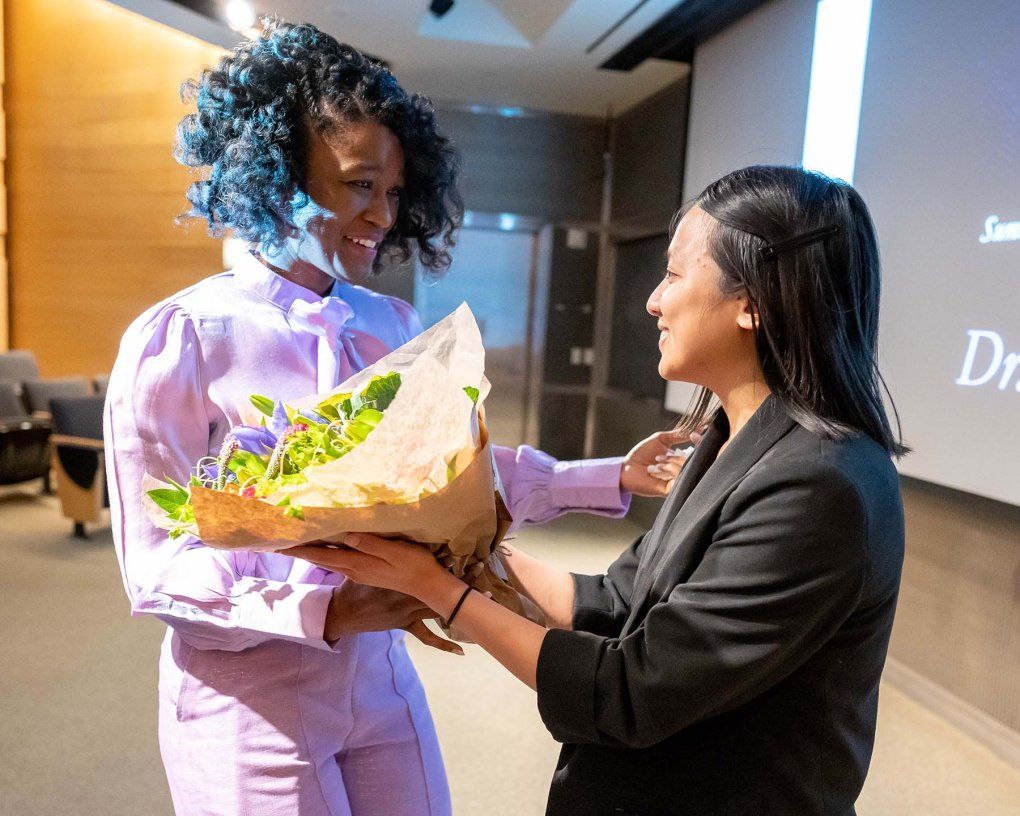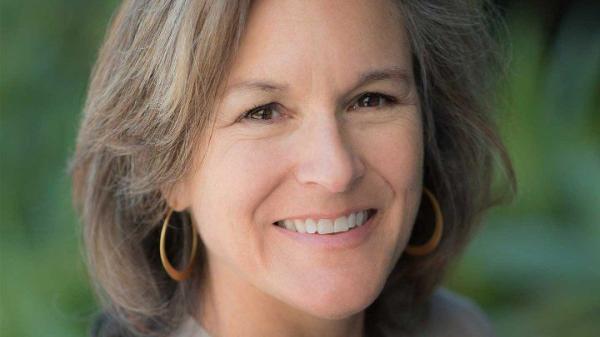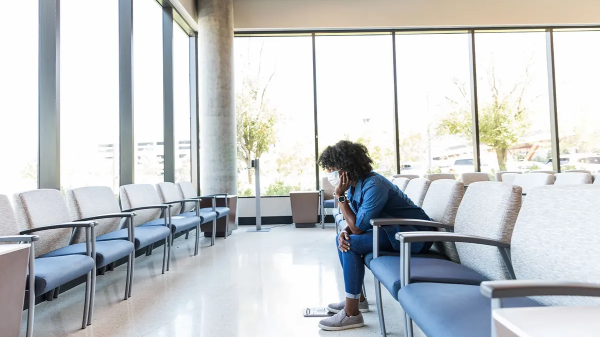The Product of a Strong Bloodline of Female Scholars, Kai Kennedy Presents 2023 Last Lecture
By Eric Brooks
What keeps you up at night?
For Kai Kennedy, DPT, it’s health equity – a complex mission that’s guided a lifelong journey from Virginia to West Africa, the Caribbean to Europe and now the Bay Area. But she didn’t get here alone.
“My teachers are all around me. Your teachers are all around you, too,” she told the crowd at UC San Francisco’s Mission Bay campus on April 12. Kennedy presented her inspiring story as part of UCSF’s annual Last Lecture program, a student-initiated series where a nominated faculty member shares the professional, personal, spiritual and cultural experiences that have shaped them.
 Kai Kennedy, DPT, left, vice chair of equity and associate professor in Physical Therapy and Rehabilitation Science, receives a bouquet from Tram Pham, after delivering the 2023 Last Lecture. Pham, a second-year physical therapy student and Graduate and Professional Student Association representative, nominated Kennedy for Last Lecture and moderated at the event. Photo by Susan Merrell
Kai Kennedy, DPT, left, vice chair of equity and associate professor in Physical Therapy and Rehabilitation Science, receives a bouquet from Tram Pham, after delivering the 2023 Last Lecture. Pham, a second-year physical therapy student and Graduate and Professional Student Association representative, nominated Kennedy for Last Lecture and moderated at the event. Photo by Susan Merrell
Kennedy, vice chair of equity and an associate professor in UCSF’s Department of Physical Therapy and Rehabilitation Science, received her BS degree in kinesiological sciences from the University of Maryland in 2002 and DPT degree from Virginia Commonwealth University in 2005. In 2018, she became the first physical therapist to be named an Atlantic Fellow for Health Equity, the same year she joined UCSF. She’s currently pursuing a PhD degree in health professions education at Utretch University in the Netherlands.
For Kennedy, her story started long before she was born.
The Richmond, VA, area native can trace back at least eight generations of her family on both sides living in America, starting with the Mattaponi tribe in central Virginia and both free and enslaved Africans in the American South. “My people have been in this place for a long time,” she said.
It’s no surprise that Kennedy is the product of a strong bloodline of female scholars, as both of Kennedy’s grandmothers pursued advanced academic studies well into their adulthood and earned bachelor’s and master’s degrees – “a rare achievement for Black women in America at that time,” she added.
It was apparent Kennedy was destined for greater things at an early age.
“I was placed in accelerated courses, separated from my friends and neighbors, one of two Black children in class, and charged with learning more comprehensive material at a faster pace,” she said. “I had been cast from my paradise into growth and new community.” But as responsibility ramped up, recurring sleeplessness did too. The pressure of weighty expectations kept Kennedy up at night regularly as early as second grade.
Clinical Education Comes Face-to-Face with Disparities
Knowing she had opportunities others did not, Kennedy wondered how to apply herself.
As she put it, her first love was track and field, and later basketball. Then, a high school teammate’s ACL injury opened the door to a new world. “I don’t remember why, but I found myself attending medical appointments with her, observing treatment protocols and asking all of the questions. I must have been so annoying,” Kennedy laughed. It was that transformative experience that led her to wonder about lack of health care access for those with barriers, specifically Black, brown and indigenous people, persons with disabilities, rural and low-income communities.
During and after her college stops, Kennedy found herself running health care events aimed at helping those marginalized groups. “I was back in my paradise, caring for my people. But after years of full-time clinical practice, countless free clinics and health fairs, I felt my impact was increasingly insignificant.” So, it was off to Ghana and later Haiti to lead health-driven community building, identify strategies for building clinical programs, address health disparities and guide health care curriculum development.




